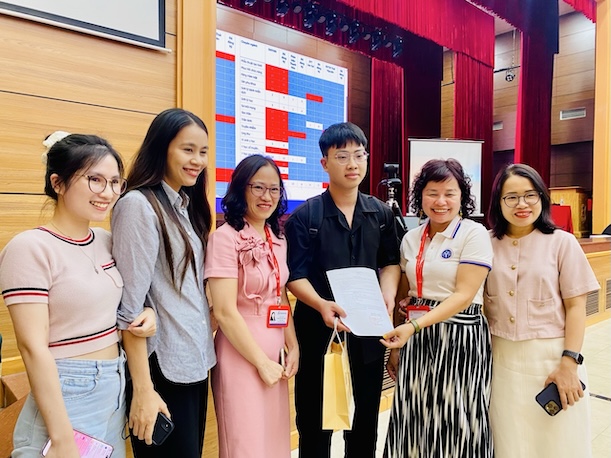Considered the "diments" of the medical industry, the symbol of the spirit of the best clinical study and practice, however, resident doctors are facing a harsh reality: The pressure of studying is heavy, the worry about tuition fees and the paradox of "going to work without salary" in adulthood.
Resident doctor - does not have a clear "dignity"
The Boarding Doctor exam is a dream and also the most difficult challenge for any medical student. The entrance exam is rigorous, the training period lasts 3 years with a high intensity of practice. However, the legal status of this degree is causing much controversy.
Sharing with Lao Dong Newspaper, resident doctor N.T.H (Hanoi Medical University) said that BSNT is always ranked highest in terms of practical skills - even rated higher than master's or specialist 1 - but this degree has not had an independent position in the national education system.
"At Hanoi Medical University, most students after graduating with a BSNT, our core value lies in the boarding title - where clinical skills are practiced most harshly," Dr. H shared.
Currently, the Ministry of Education and Training only considers boarding doctors, specialties I and II as a form of "training - practice", a condition for granting a practice certificate, not an official academic degree, and does not classify these programs within the national education system structure or national qualifications framework.
After graduating, still ... ask for money from parents to pay tuition
If professional pressure is something that young doctors are willing to accept to become "diamentals", financial pressure is a burden that makes many people sad.
At the age of 24-25, friends of the same age have started working, with stable income, but BSNTs still act as students, not only do not have salaries but also have to pay high tuition fees... etc.
Doctor H sadly revealed the actual figures: "This year, the tuition fee we have to pay is up to 62-65 million VND/year (about 32 million VND/khi). We have absolutely no salary. A few practice facilities such as Bach Mai Hospital have a policy to support about half of the basic salary for health workers, but that number is just a drop in the economy compared to the cost of living in the capital".
The dense schedule of theoretical study, night shifts and practice at the hospital has left doctors and nurses no time to work extra. The financial burden, from tuition to food and living expenses, is almost all on the family's shoulders.
"It's called a doctor graduating, studying after university but still having to be adopted by parents, that's a big psychological pressure" - H confided.
H's story is also a common concern of thousands of health workers across the country. " Pressure to create diamonds", but if the pressure on the plate is too great, it will become a barrier to prevent medical talents from fully contributing.
" Untie" boarding doctors from worries about food and money - need a breakthrough policy
Currently, many leading experts in the health sector and many leaders of major universities of Medicine and Pharmacy are proposing to include the BSNT training program in the general training framework of the education system, towards national standardization.
Accordingly, doctors after graduating from university need to undergo a mandatory boarding period to have enough independent practice capacity; at the same time, along with strict training requirements, there should be appropriate treatment policies.
First, it is necessary to consider a mechanism for tuition exemption for health workers, because this is the period when they contribute a lot of labor to hospitals during practice.
Second, it is necessary to consider the doctor as a probationary officer and have a suitable salary and bonus regime. They directly participate in medical examination and treatment, night duty, and emergency treatment like an official doctor, so "working unfairly" is a great injustice.
Only when they are "untangled" from the fear of food and clothing and are recognized as worthy of honor, will the "diments" of the medical industry truly shine, becoming the next generation of elite health care for the people.

Training medical human resources must be closely linked to clinical practice
National Assembly Deputy Tran Thi Nhi Ha - National Assembly Delegation of Hanoi City said: Training medical human resources, especially at the professional level, is not only academic training in academics but must be closely linked to clinical practice at medical examination and treatment facilities.
Specialized training cannot be replaced by a master's or doctoral training program. Currently, the system trains more than 7,000 specialists each year, forming a core force for the health sector.
According to Ms. Nhi Ha, practice has proven that this is a sustainable, effective model and needs to be fully and commensurately recognized by law. In addition, according to the World Federation of Medical Education, from 2030, only doctors who graduate from the program and are certified will be eligible to practice internationally.
"If we do not clearly establish the legal status of specialized training in the law, the Vietnamese medical team will face difficulties in the integration process; the competitiveness of national medical human resources will also be affected," the delegate emphasized.












